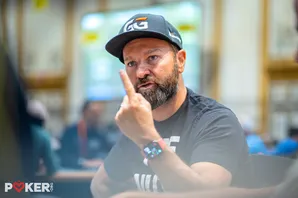The American Gaming Association (AGA) is again ramping up its attacks against online-gaming operators it believes are violating US law, this time by asking state regulators to investigate companies using the 'sweepstakes' business model through which they can offer a modified form of real-money online gaming to US gamblers.
In a recent memo, the AGA decried the sweepstakes model, declaring that companies employing it are 'potentially skirt[ing] gaming laws', depriving consumers of adequate protections, and causing states to forego 'significant tax and revenue opportunities'. Among the companies specifically cited by the AGA is Australia-based Virtual Gaming Worlds, which operates the Chumba Casino, Luckyland Slots, and Global Poker online sites.
The call to action is vital from the AGA's perspective, because the US is a legalese patchwork quilt: Each US state has laws regarding online gambling and/or gambling in general, but no two states share exactly the same ones, nor are all states sufficiently detailed and precise in what's allowed and what isn't. The AGA, a gambling-oriented lobbying group, is funded by land-based casino entities and generally champions their business interests
All of the VGW sites are available throughout most of the US and Canada (except for Quebec), and the company is the world's largest in the online sweepstakes-based market. Virtual Gaming Worlds was the first offshore online-gambling entity to specifically embrace the sweepstakes dual-currency model and it remains the dominant player, though other challengers have appeared. Virtual Gaming Worlds founder Laurence Escalante, who lives in Perth, Australia, has become a billionaire, though the space remains legally turbulent.
Dual currencies: play-money and sweeps
The legal loophole that VGW and its imitators exploit involves ambiguities in gaming laws, not dissimilar to how video slots in bars and other commercial establishments in many US states now incorporate a simple skill-game element. Online, the legal workaround works like this: Sweepstakes-based sites allow users to purchase coin packages that prominently feature large amounts of free-to-play coins, accompanied by a small number of 'sweeps' coins. The coins, whether free-to-play or sweeps, then can be used to participate in a roughly parallel lineup of games.
The play-money coins, which are called 'Gold' coins on Global Poker, can never be exchanged for cash or prizes. The 'Sweeps' coins, which are called just that on Global Poker, can be redeemed, should a player build up a withdrawable amount and go through a verifiction process.
Global Poker, for example, has its online poker room, and under a separate tab, it also has an online casino that features both slots and table games. Both the poker and the online casino offerings are available in the Gold (free-to-play) and Sweeps coin versions. Switching between the Gold and Sweeps coins is also tab-based and done with a single click.
VGW reasserts legality of offerings
VGW and other companies using the sweepstakes model operate by muddying the classic three-pronged definition of gambling as it's generally understood - if not always specifically defined - across most of the US. That prong deals with 'consideration', as in using something of value to make a wager through which something else of value can be won.
At Global Poker, for example, the consideration workaround includes these elements:
- The site distinctly requires that no purchases are required to participate
- All purchases of coins emphasize the free-to-play Gold coins; the Sweeps coins are fashioned as a giveaway, an add-on
- The free-to-play coins are issued in much larger amounts, even if it's a moot distinction done for appearance's sake
- The site offers free daily giveaways of both Gold and Sweeps coins and also gives away both at signup. Therefore, It's possible to build up playable bankrolls of Sweeps coins without making any deposit, though it's likely to be a slow process
Global Poker available in 46 states
Despite its assertions of legality, Global Poker isn't available in every US state. Currently, the site isn't accessible to players in Washington, Idaho, Montana, and Michigan. Washington, in particular, has some of the strictest online-gaming laws in the country. In 2023, International Game Techonolgy (IGT) settled a class action brought on behalf of two Washington women. IGT paid $415 million to settle the matter, which involved the popular DoubleDown Casino social-gaming site that IGT later sold.
IGT agreed to the settlement despite the fact that DoubleDown had no dual-currency mechanism, players could play only with coins that had no value and could not be cashed out. Players could still purchase packages of play-money coins, thus providing at least part of the legal definition of consideration. Other than whatever entertainment value the site provided, however, it remains hard to grasp the 'consideration' the online casino returned in classical legal terms.
Global Poker parent Virtual Gaming Worlds is beginning to fight some of these battles as well. As the AGA likely believes, the 'sweepstakes' space has become too big to ignore. Late last year, VGW pulled its operation, including Global Poker, out of Michigan. A couple of years earlier, Michigan's legislators updated the state's gambling codes, appearing to make sites such as VGW's offerings specifically illegal. Michigan gaming regulators served VGW with a cease-and-desist order, and rather than enter an expensive court battle, VGW complied.
VGW is also in the sights of Delaware's online-gaming regulators. That state served notice on VGW in early 2023, though that only came to public light in the past couple of weeks. To date, Global Poker remains accessible in Deleware. Lawsuits targeting VGW and its online sweepstakes-based sites have also emerged in at least two other states, though those are consumer-initiated actions and do not involve, at this time, any formal regulatory involvement.


















